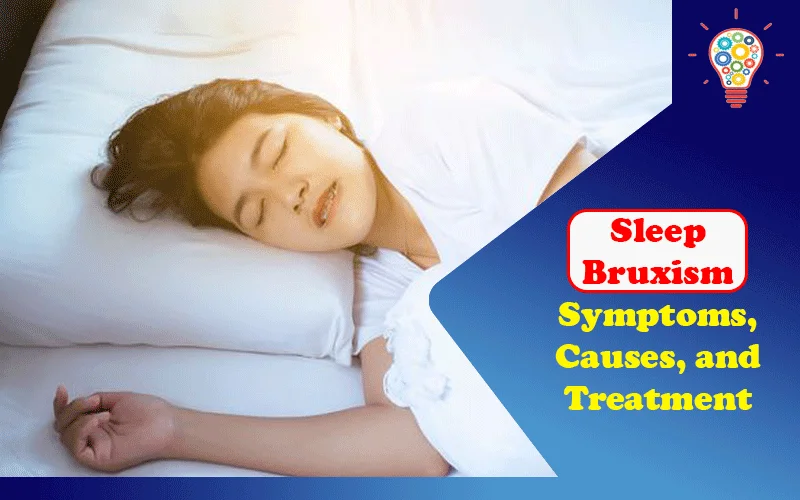Table of Contents
What is Sleep Bruxism?
Sometimes, we all clench our teeth in an emotional state of anger, fear, and anxiety. But do you involuntary keep clenching teeth at night during sleep? If yes, then you have a condition known as sleep bruxism. Teeth grinding can happen in both day and night. However, you are less likely to notice if you clench your teeth at night early on. But you put immense pressure on your teeth while asleep.
Sleep bruxism poses serious health complications for your teeth and jaw. With some help from a dentist in Tampa Florida we came up with this comprehensive guide on sleep bruxism. We are here to explore its symptoms, causes, and treatment to increase your knowledge on the subject.
Symptoms of Teeth Grinding at Night
The following symptoms are indications of sleep bruxism. You should visit your dentist at the earliest if you notice any of them.
- Recurring headaches, especially in the morning.
- Unknowingly clenching the teeth at night.
- Increased sensitivity in teeth.
- Stiffness in jaw muscles. Sometimes it reaches a point where it becomes difficult to open the jaw.
- Constant disturbance in sleep.
- The loud noise made out of teeth grinding which can wake your bed partner.
- Frequent pain and soreness in the jaw, neck, ear, and other parts of the face.
- Damage in the inside of cheeks or tongue because of grinding teeth in sleep.
- Visible deeper layers of any tooth due to damaged enamel.
- If you got any dental fillings, they also might disintegrate due to clenching teeth at night.
- If your sleep bruxism is severe, you might develop masticatory muscle hypertrophy. In this condition, the jaw muscles become bulky due to overuse.
- Severe pain in a tooth.
- Chipped, lose, and fractured teeth without any injury or trauma.
Causes of Grinding Teeth in Sleep
The research is still going on to find the exact cause of sleep bruxism. Experts as of now cite multiple reasons for its occurrence such as:-
- Genetic inheritance.
- Mental imbalance like depression, stress, and anxiety.
- Changed sleep cycle.
- Habits like smoking, consuming excessive alcohol, and caffeine.
Treatment Options for Sleep Bruxism
There are various methods to treat sleep bruxism. The approach of your treatment will depend upon your condition.
-
Medication
Medication is not a sure shot for treating bruxism, but it can work in some cases. You can be prescribed with:-
- Muscle relaxants before bedtime.
- Botox injection with botulinum toxin for people in more serious cases.
- Anti-anxiety and anti-depressants for a short time to relieve your tension and stress.
-
Psychological Approach
You might receive mental training to take control over the following issues:-
- Behavioral patterns – you can stop the teeth grinding by training your mind to have better control over your teeth and jaw.
- Biofeedback – It is a monitoring procedure that uses equipment to train you on how to control the activity of clenching teeth at night and day.
- Anxiety & stress reduction – A counseling session on emotional management can help a great deal if the reason for your teeth grinding is stress or anxiety.
-
Dental Fixes
These methods are used to prevent your teeth from the damage caused by sleep bruxism. They are not effective in treating the condition.
- Dental correction & crowns – When your teeth are damaged a lot due to grinding against each other, your dentist reshapes the chewing surface through crowns and other dental correction methods.
- Mouthguards & splints –Mouth guards are made up of acrylics, and they fit over your upper and lower teeth. They keep your teeth separate to minimize the impact of teeth clenching.
-
Treatment of the Root Cause
In case your dentist knows the cause of your sleep bruxism, they will fix it to treat you. For example:-
- Sleep Apnea – If you have sleep apnea or other sleep-related disorder, treating them will stop clenching teeth at night.
- Medical condition or a medicine – Your sleep bruxism can be the side effect of medical conditions or a medicine. The dentist will try to arrange alternate medication and treatment for you in such cases.
Bottom Line
Sleep bruxism is curable, but it requires a detailed diagnosis by your dentist. Thus it is recommended that you observe all your symptoms and triggers carefully. Also, carry your complete medical history with you while visiting your dentist.
Read Also: What Are the Best Ways to Whiten Teeth?
Author Bio:
Dr. Anu Isaac, DMD, runs a successful dental practice in Salem, MA. Dr. Isaac strives for quality on a daily basis and this commitment to quality is reflected in her constant pursuit of advanced training. Her firm belief that even experts need to stay updated about what’s new in the dental field, enables her to provide every patient with optimal oral care. As the founder of Coral Dental Care, she is dedicated to creating healthy, beautiful smiles for her patients and also to educating dental and non-dental communities with her engaging articles on all things related to oral health, recent dental innovations, and the latest treatment modalities.


3 thoughts on “Sleep Bruxism; Symptoms, Causes, and Treatment”